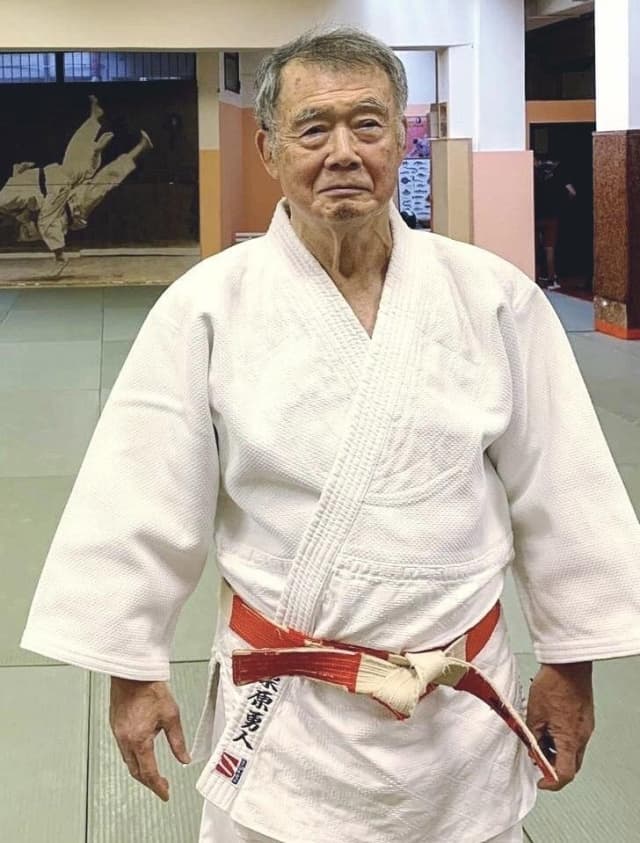Born in 1941 in Kumamoto, Japan, into one of the last samurai families, Kurihara embodied the essence of judo, with discipline, humility and courage from an early age. He earned his black belt at just 14 and by 16 had already achieved his 2nd dan. His talent and intellect took him to Chuo University in Tokyo where he studied economics and in 1963 became university champion.
During his studies, he assisted the renowned Kikuchi Sensei (8th dan) and in 1964 was called up to the Japanese national team training camp ahead of the Tokyo Olympics, where judo made its Olympic debut. Graduating with honours, Kurihara became the first assistant to Kotani sensei (10th dan) at the Kodokan, one of Jigoro Kano’s direct students. There he taught judo to officers of the U.S. Air Force.
In September 1964 he was sent to Europe by the Kodokan to help develop judo across the Western world. At Tokyo Airport, more than a hundred people gathered to bid him farewell. When Kotani Sensei stepped forward to bow before his disciple, silence filled the hall, a symbol of deep respect. Upon arrival at Linate Airport in Milan, another hundred people awaited him, escorting him straight to the dojo. Despite 23 hours of travel, Kurihara immediately accepted an invitation to compete in a Ju-Nin-Gake (one judoka against ten). He won every contest by ippon, the longest lasting less than two minutes.
In 1970 he founded the Kurihara Judo Club in Milan, a dojo that has since trained over 10,000 students and shaped generations of judoka in Italy and beyond. His influence extended far beyond competition; he embodied judo’s philosophy of respect, perseverance and constant growth.
Rei, maestro Kurihara. His legacy will live on forever through every bow, every throw and every student who has stepped onto the tatami with him.

